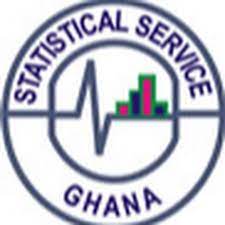
Audio By Carbonatix
The Ghana Statistical Service (GSS) has completed a national training programme for 40 field teams ahead of the start of data collection for the Quarterly Labour Force Survey (QLFS).
The QLFS is a new survey that will provide regular data on employment, multidimensional poverty, and food insecurity in Ghana. The closing ceremony for the training was held on Monday, 12th May 2025.
In an address to the field officers, the Deputy Government Statistician, Dr. Faustina Frempong Ainguah stated that the QLFS will support evidence-based planning and monitoring for national development, especially in light of recent shifts in work patterns under the 24-hour economy policy.
“The focus of this survey is not only on data collection, but on understanding how people live, work, survive, and plan,” said Dr. Faustina Frempong-Ainguah.
“We are collecting information that will help government and partners make informed decisions", she added.
Fieldwork is scheduled to begin on Monday, 17 May 2025, and will continue through the fourth quarter of 2026.
The QLFS will gather information on labour force participation, including full-time, part-time, and shift work; job quality and working conditions; non-income indicators of poverty, including housing, health, education, and access to basic services and the extent and causes of food insecurity at the household level.
The data will be collected using electronic tablets and a computer-assisted personal interview (CAPI) application. Each team consists of one supervisor, four interviewers, and one driver.
The GSS has also trained seven quality monitors and a central team to manage real-time data review through a digital dashboard.
Francis Bright Mensah, Project Coordinator for the QLFS, stated, “Our field officers are key to this process. The accuracy of the data depends on how the interviews are conducted.”
The QLFS is being implemented by GSS with technical support from the International Labour Organization (ILO). The results will support policy reviews related to employment, social protection, and economic inclusion, and will contribute to tracking progress on national and global development targets. GSS indicated that public participation is essential for the success of the survey.
It encouraged selected households to cooperate with field officers and provide complete and truthful responses.
“We encourage all selected households to take part, Your information will help shape programmes and resource distribution”, Dr. Faustina Frempong-Ainguah added.
The GSS also called the media, local authorities, and community leaders to support public awareness of the QLFS.
Latest Stories
-
Women in Russian man videos scandal not cheap – Issifu Ali
3 minutes -
Cedi safe amid digital asset growth – BoG
11 minutes -
Photos: EPA busts 14 containers of illegal mining machines at Tema Port
16 minutes -
Harmonious Chorale to represent Africa in Poland and Sweden as it kicks off 20th-anniversary celebrations
17 minutes -
We can’t wait forever for AfCFTA – AGI demands alternative regional trade access
21 minutes -
The Drama of Cocoa politics: When farmers become puppets
21 minutes -
CSIR-BRRI advocates use of local materials in production to reduce cement prices
23 minutes -
Three miners killed in rock collapse at Gbane
45 minutes -
Awudome, Osu cemeteries not full — Managers
47 minutes -
Africa’s grand stage of honour: Why Ghana hosts POTY 2026
54 minutes -
Hillary Clinton accuses Trump administration of a ‘cover-up’ over its handling of Epstein documents
1 hour -
Project C.U.R.E begins 10-day assessment to support Ghana Medical Trust Fund’s NCD fight
1 hour -
Government assures public of stable ‘fugu’ prices amid Wednesday-wearing policy
1 hour -
Ghana on track for full-scale tomato production by year-end – Deputy Agric Minister
1 hour -
Danny Addo to host Undignified 1.0 event and album launch
1 hour

